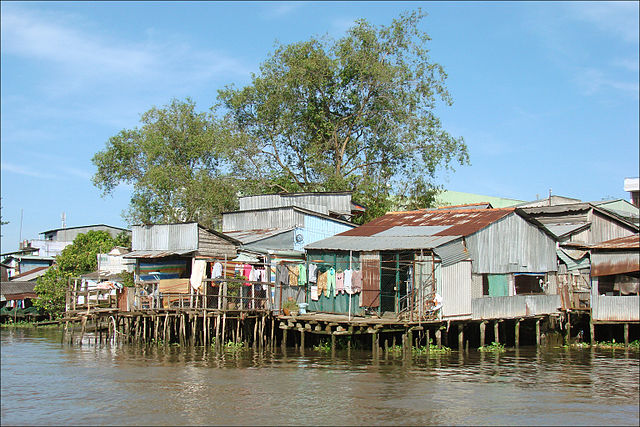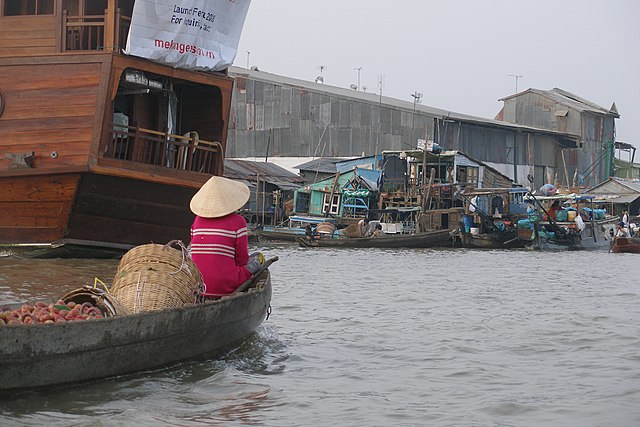Nestled in the heart of the Mekong Delta, Can Tho is a vibrant city that offers a blend of traditional Vietnamese culture and breathtaking natural beauty. Known as the “rice basket of Vietnam,” Can Tho is famous for its lush rice paddies, intricate canals, and bustling floating markets.
For travelers seeking unique experiences, Can Tho provides a myriad of opportunities to immerse in local culture, explore the delta’s rich biodiversity, and enjoy the region’s culinary delights. Here are some unique things to do in Can Tho, Vietnam.
1. Visit the Cai Rang Floating Market
No trip to Can Tho is complete without a visit to the Cai Rang Floating Market, one of the largest and most lively floating markets in the Mekong Delta. The market starts early in the morning, with boats laden with fruits, vegetables, and local goods crowding the river. Visitors can experience the vibrant atmosphere, interact with local vendors, and enjoy a boat tour through the bustling market. For an authentic experience, hire a local guide who can help you navigate the market and explain the various products and their significance in Vietnamese culture.
2. Explore the Ninh Kieu Wharf
Ninh Kieu Wharf, located in the city center, is a bustling riverside area that offers a glimpse into the daily life of Can Tho’s residents. The wharf is lined with charming cafes, street food vendors, and traditional shops. In the evening, the area comes alive with vibrant night markets and live music performances. Visitors can take a leisurely stroll along the riverbank, enjoy a cup of Vietnamese coffee, or hop on a boat for a scenic ride along the Hau River.
3. Discover the Binh Thuy Ancient House
The Binh Thuy Ancient House is a beautifully preserved colonial-era mansion that showcases the architectural fusion of French and Vietnamese styles. Built in 1870, the house features intricate wood carvings, antique furniture, and a stunning garden filled with exotic plants and flowers. The Binh Thuy Ancient House offers a fascinating glimpse into the lifestyle of the Mekong Delta’s wealthy landowners during the colonial period. Visitors can explore the house, learn about its history, and take a guided tour of the surrounding gardens.
4. Take a Boat Tour of the Mekong Delta
One of the best ways to experience the natural beauty of the Mekong Delta is by taking a boat tour through its intricate network of canals and waterways. Visitors can hire a private boat or join a group tour to explore the delta’s lush landscapes, visit local villages, and observe traditional fishing techniques. The boat tours often include stops at local workshops where visitors can learn about traditional crafts such as rice paper making and coconut candy production.

5. Enjoy the Culinary Delights of Can Tho
Can Tho is a food lover’s paradise, offering a wide array of delicious dishes that reflect the region’s rich culinary heritage. Visitors can savor local specialties such as “Banh Xeo” (Vietnamese pancake), “Hu Tieu” (rice noodle soup), and “Ca Kho To” (braised fish in clay pot). For a truly unique experience, visit a local home and participate in a cooking class where you can learn to prepare traditional Vietnamese dishes using fresh ingredients from the Mekong Delta.
6. Visit the Truc Lam Phuong Nam Zen Monastery
Located just outside the city, the Truc Lam Phuong Nam Zen Monastery is one of the largest monasteries in the Mekong Delta. The monastery’s serene atmosphere and stunning architecture make it a perfect place for meditation and relaxation. Visitors can explore the temple grounds, admire the intricate carvings and statues, and participate in a meditation session with the resident monks. The monastery also offers vegetarian meals, giving visitors a chance to enjoy a peaceful lunch amidst the tranquil surroundings.
7. Experience a Homestay in the Countryside
For a truly immersive experience, consider staying in a homestay in one of the rural villages surrounding Can Tho. This allows visitors to experience the daily life of local farmers and gain insights into the traditional culture of the Mekong Delta. During your stay, you can participate in farming activities, learn about local customs, and enjoy home-cooked meals prepared by your host family. It’s a unique opportunity to connect with the local community and experience the warm hospitality of the Mekong Delta.
8. Explore the Can Tho Museum
The Can Tho Museum is the largest museum in the Mekong Delta, showcasing the region’s history, culture, and natural heritage. The museum’s extensive collection includes artifacts from the Khmer and Cham civilizations, traditional costumes, and agricultural tools. Visitors can learn about the history of the Mekong Delta, its diverse ethnic groups, and the region’s ecological significance. The museum also features interactive exhibits and multimedia presentations, making it an engaging experience for visitors of all ages.
9. Attend a Traditional Water Puppet Show
Water puppetry is a traditional Vietnamese art form that dates back to the 11th century. The performances, which take place on a stage of water, depict scenes from rural life, folk tales, and legends. The Can Tho Water Puppet Theater offers daily shows, providing visitors with a chance to witness this unique art form. The colorful puppets, accompanied by live music and traditional singing, create a mesmerizing experience that is both entertaining and culturally enriching.
Conclusion
Can Tho, with its unique blend of cultural heritage, natural beauty, and warm hospitality, offers a wealth of experiences for travelers seeking something different. From exploring the bustling floating markets and serene monasteries to enjoying the region’s culinary delights and traditional performances, there is something for everyone in this vibrant city. Whether you’re a history buff, a foodie, or an adventure seeker, Can Tho promises a memorable journey through the heart of the Mekong Delta.
Featured Image: Can Tho Floating Market | Photo by Vyacheslav Argenberg
Read more Vietnam travel articles.

